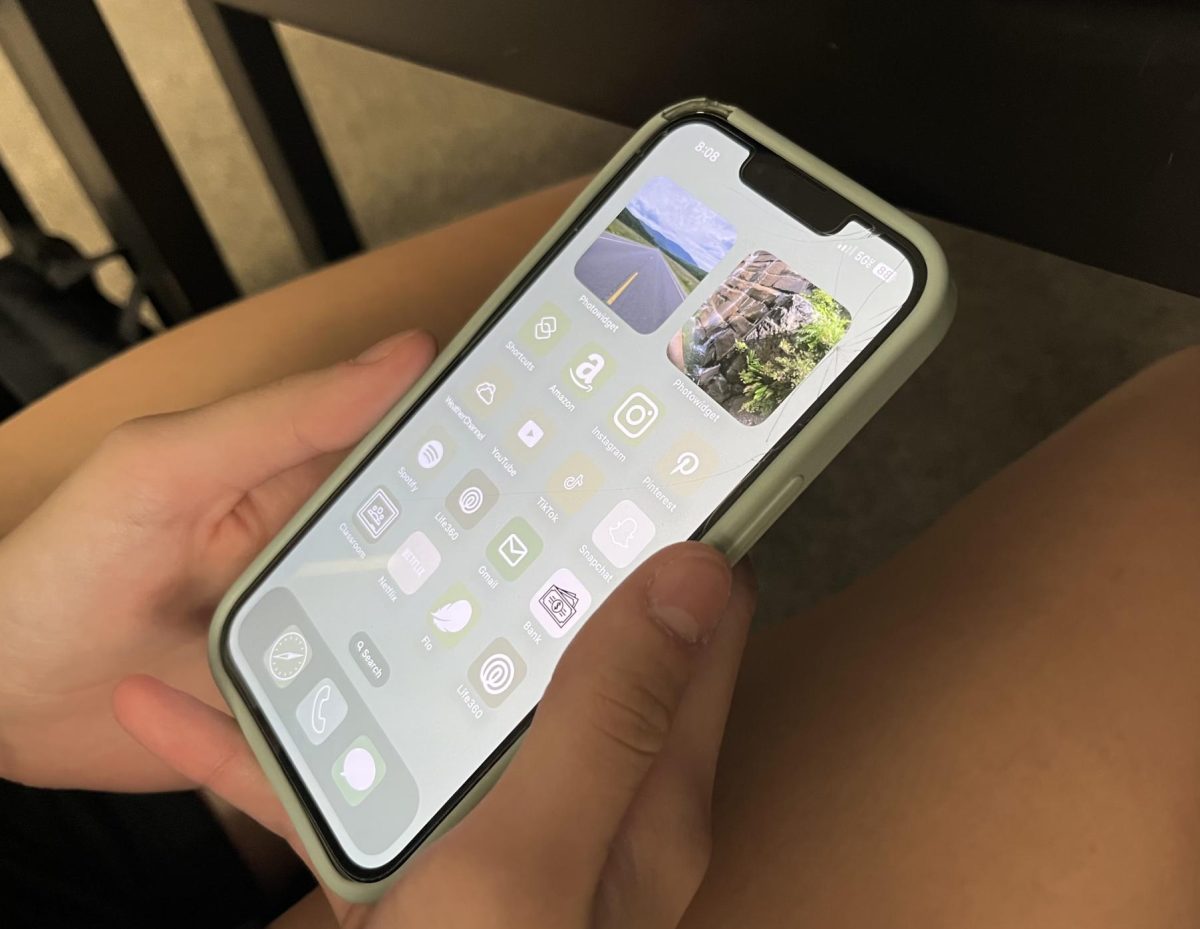There have been countless times where I have felt more irritable and tired due to being on my phone, and the more research I did, the more I understood why.
The average American spends more time on their cell phone than they think. According to Digital Information World, we spend on average up to nine years on our cell phones, which if you put that in perspective, is like going through kindergarten all the way up to sophomore year just on the phone.
Screen time numbers have increased drastically, part of it having to do with the global pandemic, COVID-19. While most of the world was online during that time, the amount of screen time increased by about 52% due to the remote learning, and not being able to do much outside of the house.
It used to be that owning a cell phone was most common for adults, but the age of owning one is getting smaller. Fourty eight percent of children now have a phone by the time they reach the age of 10, which has been shown to create many mental health disorders in young children.
According to a recent study by the Journal of Adolescent Health, Obsessive Compulsive Disorder (OCD) poses a major threat to children ages 9 and up. Professionals are coming out saying that a large part of the diagnosis has to do with great amounts of screen time.
OCD is a disorder that causes unwanted thoughts and actions that interfere with peoples’ everyday lives. Cell phone use has been linked to the disorder because of the videos and algorithms people watch that make them want to continue watching, thus getting addicted to their screens.
While some may argue that the increase of technological use has benefited our society by providing useful tools and a way to communicate, it has also created major problems including self image issues, sleep habits, mental health disorders and addiction.
This is all mainly due to the fact that cell phones produce endorphins, which are hormones that create a “feel good” sensation in the body. Because of this hormone, addiction numbers rise because they get blinded by the good feeling.
Not only is screen time detrimental to your mind, but also your physical health. A study by the National Institution of Health showed that nine out of ten Americans use their phones before bed, and 41% of them have recorded sleep problems. This us due to the stimulation that tells your brain not to shut off. With low amounts of sleep, it can cause problems with focus, concentration and energy during the daytime.
Screens have also been linked to obesity problems in individuals. The convenience of things is something that many people tend to enjoy because they don’t have to go get it themselves, but the “straight to your door” promotion makes people less active. Inactivity is the main cause of obesity in young children and adults, and screen time use does not make it any easier to get exercise.
Some people have tried to solve the effects of screen time by creating blue light glasses and apps telling you to get off of your phone, but not one of them have fully solved the problem.
Since the big boom of switching to online during the 2020 pandemic, the screen time hours have persisted into today, and are increasing more and more by the day. It is understandable that just laying down on your cell phone after a long day might feel relaxing, but screen time numbers add up by the minute. As our society gets more advanced in technology use, there is no doubt that the numbers will only grow. But by spreading awareness of the dangers screens can bring, it might make people think a little more about it.








